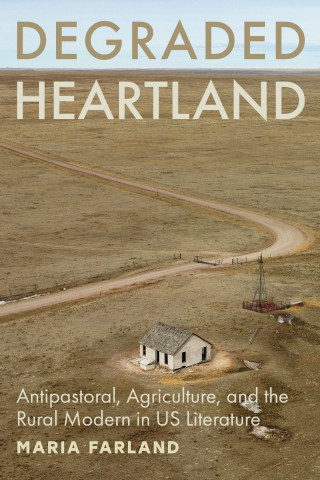
Reviews
In addition to revealing the affective richness of the American antipastoral mode, Degraded Heartland is impressive in its archival depth. Farland particularizes in new and compelling ways the lived experiences informing the rural-modern sensibilities of an expansive and sometimes surprising array of writers.
Combining new archival evidence with deft close reading to show how the antipastoral mode took up the human and environmental impacts of rural modernization, Farland investigates an important, overlooked dimension of American Modernism from Whitman and Dickinson through the Harlem Renaissance and immigrant writers.
Those of us who've lived our lives on dirt roads appreciate this kind of serious look into how rural America has been perceived—for a staggeringly long time! A book that will be referenced for decades.
Degraded Heartland persuasively claims the antipastoral mode and its representations of rural struggle as essential to literary modernism and its ongoing legacies. Through incisive readings and deft research, Farland's book provides a revelatory account of the rural and agricultural as central rather than peripheral to American ecology, economy, and culture.
Degraded Heartland reframes the pastoral in ways that will transform how we think and write about rural America. Farland's argument will have a wider impact on American studies and the environmental humanities, and stake a claim in the always contested ground of what rural America has come to mean.
Book Details
Introduction
Chapter 1. "The Little Barren State of Massachusetts": Dickinson, Plants, and Rural Progress
Chapter 2. "All the Changes of City and Country": Agriculture and (Re)generative Antipastoral in
Introduction
Chapter 1. "The Little Barren State of Massachusetts": Dickinson, Plants, and Rural Progress
Chapter 2. "All the Changes of City and Country": Agriculture and (Re)generative Antipastoral in Walt Whitman
Chapter 3. Thoreau Against the Grain: The Antipastoral in Walden
Chapter 4. "Yankee Agrarian": Robert Frost, the Degenerate Farmer, and the Elevation of the Rural Mind
Chapter 5. New Negro Agrarians: Antipastoral, Rural Uplift, and the Harlem Renaissance
Chapter 6. Prairie Migrants: Modernism, Agricultural "Fitness," and Immigrant Farm Fiction
Conclusion. Degeneration Now, Degeneration Forever
Acknowledgments
Notes
Index






